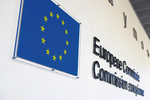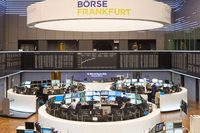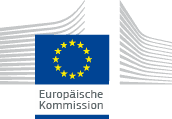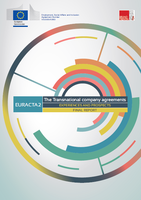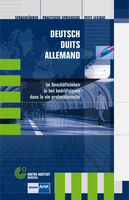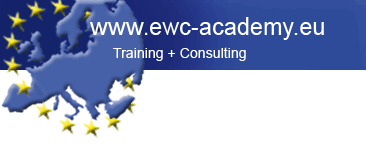 |
24
April
2015
|
|
Welcome to issue no. 1 / 2015 of EWC News.
|
|
The Academy for European Works Councils (EWC Academy) is there to inform you about the activities of European Works Councils and related subjects.
EWC News appears four times a year. You can find past issues in the newsletter archives.
You can download this newsletter as a pdf file and print it out.
|
|
1.
Collective EU labour legislation reforms
|
|
European Commission starts explosive round of consultations
On 10 April 2015 the European Commission started an official consultation procedure with trade union and employers' associations on the European level. The goal is the revision of three Directives which are of major importance to works councils:
The European Commission would like to evaluate the consistency and effectiveness of these three legal acts, and hereby standardize definitions and smooth out any differences. The social partners must submit their opinion before the 30 June 2015. The crucial question hereby is how the information and consultation of local works councils should take place in the case of restructuring. This is currently also the main subject of conflict in Brussels for the improvement of participation rights in European and SE works councils. The following levels can be differentiated:
Nowadays, levels 1 and 2 are already a widely established legal right, even if the exact definition continues to give rise to political and legal disputes. Level 3 is only present in the SE Directive but, in the opinion of trade unions, it should however be extended to all Directives. The question of sanctions also has a special significance: If consultation is interpreted in the French sense, there is a right to injunction. The employer cannot implement any measures until the works council has rendered its opinion. By using this concept intelligently negotiations can take place before the opinion is rendered (see report in EWC News 3/2011). Another issue just as important is the specification of deadlines for rendering the opinion which employers are very keen to explicity fix. Works councils however, generally reject this since it represents the only way of enforcing negotiations.
Start of EWC Directive evaluation
An important part of the evaluation will be a cost-benefit analysis of the new regulations for employees as well as for companies. A legal analysis of past court proceedings in EWC matters is also planned. The analysis, which will drag on for several months until the end of 2015, will also include interviews with management representatives and EWC members from selected companies, in order to illustrate case studies. The contract for the evaluation was awarded to the London office of ICF International, the US consulting firm (formerly GHK Consulting), who already carried out a similar analysis in 2008 before the last revision of the EWC Directive (see report in EWC News 3/2008). The EWC Academy in Hamburg in collaboration with the French consulting company, IR Share, will contribute to this new evaluation.
Dr Tina Weber, the project manager of ICF, will present the first preliminary results at the London conference for European works councils on 23 October 2015.
|
|
2.
Court proceedings affecting the whole of Europe
|
|
Insufficient sanctions in German EWC legislation - a case for Luxembourg?
The legal case concerns a plant closure in Neumünster (Northern Germany) at the end of 2014 and is linked to a larger restructuring. Although 3,600 employees were affected at 19 sites in 14 countries, central management at first contested the transnational character and the competence of the EWC. Dismissals were announced on 18 August 2014, with reference to a business decision dating from 23 July 2014. Since the European works council was likewise only informed on the 18 August 2014, the infrigement of EWC rights could be substantiated in court. A consultation procedure has no sense whatsoever, once the decision of central management has been taken irrevocably. The breach of law here is just as apparent as in the US automotive supplier Visteon case from June 2011 (see report in EWC News 3/2011).
Already fourth court case for Amcor
The current proceedings are connected with three other legal cases, where the EWC is involved in legal action at several court levels against central management. The anglo-saxon style management has great difficulty in accepting the existence of a full-fledged European works council and has been purposefully obstructing for years.The issues under dispute in the other court proceedings are:
Discussions on an out-of-court solution More recently the clear evidence available in the lastest case has prompted central management to reconsider their attitude towards the EWC. Since December 2014 there have been behind-the-scene discussions over a mutually agreed settlement of all four procedures thus avoiding any court ruling. It is difficult to forsee how long these discussions will last. Examples from other companies (see report in EWC News 1/2013) tend to suggest that it will not end up in a court ruling.
Forthcoming event
A legal seminar on the subject of past EWC case law is being held from 28 to 30 October 2015 in Hamburg.
German stock exchange with parity-based supervisory board thanks to EU workforce
Supervisory board representation has to be established when German companies exceed certain thresholds: starting from 500 employees they are alloted a third of the seats and starting from 2,000 employees one half. However, up to now, only the employees in Germany were taken into account. In the holding company of the German stock exchange in Frankfurt six mandates are currently allotted to the works council, and twelve to the shareholders (one-third participation). In Germany the company has 1,624 employees. The court has now included 1,588 employees from Luxembourg, Czechia and the United Kingdom, since they consider their exclusion to be a discrimination violating EU law. As a consequence the company now has to form a parity-based supervisory board with six employee and six shareholder representatives. On the employee side the works councils must concede two seats to external trade union officers and the shareholder side loses six mandates.
Consequences also for SE supervisory boards?
In view of this ruling, employer-friendly lawyers are urging other German companies to immediately start the conversion into the European Company (SE) legal form to prevent the threatened expansion of German co-determination. Whether this will be successful in the long term, remains uncertain. This could possibly shed a completely new legal light on the freezing or avoidance of employee participation in previous SE conversions. In terms of figures for the whole of Europe, Germany counts for half of all SE conversions with significance for employee rights (see report in EWC News 4/2011).
|
|
3.
Individual country reports
|
|
Swiss currency shock: Longer working hours with no wage compensation
A whole group of multinational companies reacted with wage cuts or now pay wages in euros. Well known companies such as Siemens have increased working time by five hours. According to Swiss labour legislation, the weekly working hours can be increased by mutual agreement with the works council up to 45 hours, without wage compensation. The aim hereby is to avoid hiring new employees. Over one third of all Swiss companies (37%) are now invoicing in euros also for the domestic market. Despite this there are now more and more cases where a relocation of production to the euro-zone is being planned. The current unemployment rate of 3.5% could rise for the first time in autumn 2015.
A two-hour general strike, organized by trade unions, took place on 28 January 2015 in several cities in Norway in protest against planned amendments to the labour code. The conservative government, in power since October 2013, wants to soften job-security legislation, in order to promote employment. There are also discussions on short-term work contracts, longer legal working hours, more overtime and a reduction of legal restrictions to Sunday working. Norway has an unemployment rate of 3.9% and due to its oil resources is one of the richest countries in Europe. Following the Second World War, the Social Democrats have nearly always been in power.
On 15 April 2015, for the first time since change of government, a meeting took place between trade unions, the employers' associations and the Ministry of Labour. Discussions included means to reinstate an effective social dialogue as well as stable collective bargaining structures and a road-map for a minimum wage, which is to start at 650 € from 1 October 2015. The left-wing government, in power since the end of January 2015, is hereby openly supported by the trade union federations in Brussels. Over and over again they had severely criticized the dismantling of the labour laws by the preceding governments. |
|
4. Newly established
European works councils
|
|
South Korean group closes
Belgian site shortly before establishing EWC
The largest workforce within the EU is in Czechia where Doosan had taken over the energy division of Škoda in 2009. Further sites in Belgium, France, Germany and other countries were also acquired from other groups. The European works council is composed of 14 employee representatives and meets once a year. France, Belgium and Czechia have three seats each and Germany, Ireland, Norway and the United Kingdom one each. Countries with a small workforce share together one mandate. The five member select committee manage current affairs and can meet several times per year. A detailed conciliation procedure is provided for handling conflict and any court action is only allowed after this. Doosan is the second company in South Korea, after Samsung, with a European works council. Following texts are only available in French:   Spanish automotive supplier
establishes EWC Spanish automotive supplier
establishes EWCA EWC agreement was concluded for Gestamp on 29 January 2015 in Madrid, covering its 18,800 employees from ten EU countries. This Basque family business had bought the car body unit of the German automotive supplier Edscha in 2010. The EWC is composed of 21 members (including six seats for Spain and four for Germany) and holds two meetings a year. The five member steering committee meet twice a year and for extraordinary circumstances. In addition a working group on occupational health and safety is established and another on corporate social responsibility. The EWC can be assisted by two experts and can organize four days of training per term of office. In the case of conflict a company arbitration board can be convened. In comparison with other EWC agreements under Spanish jurisdiction these represent very good operating conditions.
French logistics company establishes EWC   A EWC agreement was signed on
18 February 2015 at the headquarters of GEFCO in the Paris suburb,
Courbevoie. The company is considered as the market leader in European
automobile logistics and has long-term exclusive contracts with PSA
Peugeot Citroën and General Motors. Since 2012 it has been
majority-owned by the Russian railways (RŽD),which wants to develop a
railway connection for goods between Western Europe and Asia. The EWC
represents 9,000 employees in 18 EU countries and is composed of 18
members (including five from France). Small countries must share common
seats. Projects fall in the scope of the EWC, if they concern the
entire group or at least two sites and involve 150 employees in two
countries (or 80 in one country). The employer chairs the meetings.
According to French custom, training rights, time-off provisions and
budget for experts are explicitly defined. A EWC agreement was signed on
18 February 2015 at the headquarters of GEFCO in the Paris suburb,
Courbevoie. The company is considered as the market leader in European
automobile logistics and has long-term exclusive contracts with PSA
Peugeot Citroën and General Motors. Since 2012 it has been
majority-owned by the Russian railways (RŽD),which wants to develop a
railway connection for goods between Western Europe and Asia. The EWC
represents 9,000 employees in 18 EU countries and is composed of 18
members (including five from France). Small countries must share common
seats. Projects fall in the scope of the EWC, if they concern the
entire group or at least two sites and involve 150 employees in two
countries (or 80 in one country). The employer chairs the meetings.
According to French custom, training rights, time-off provisions and
budget for experts are explicitly defined.We have put together a selection of EWC agreements on a website for download. |
|
5. New SE
participation
agreements
|
  Channel Tunnel now operating as SE Channel Tunnel now operating as SEAn SE agreement was signed for Eurotunnel on 1 December 2014 in Paris. The company operates the 50 km-stretch of railway tunnel under the English Channel together with logistics services and has 4,000 employees. The SE works council will replace the European works council established in 1998. It is made up of 18 members (eleven from France and seven from England) and meets twice annually. The steering committee consists of six representatives (three each per country). Since the agreement is under French jurisdiction, the employer is chairperson. Employee participation on the board of directors is not provided for. For restructuring matters, the SE works council has only eight days to render its opinion. A well founded economical analysis is therefore hardly conceivable. Europe’s largest aerospace group soon with four SE works councils   An SE agreement under Dutch jurisdiction was
concluded for the Airbus group (formerly EADS) on 24 February 2015 in
Amsterdam. It closely matches the proven structures of the European
works council which was established in 2000 and groups together several
European divisonal works councils under the Holding (see report in
EWC News 1/2012). The new SE works council will
cover additional countries, have more mandates as well as having better
working conditions. An SE agreement under Dutch jurisdiction was
concluded for the Airbus group (formerly EADS) on 24 February 2015 in
Amsterdam. It closely matches the proven structures of the European
works council which was established in 2000 and groups together several
European divisonal works councils under the Holding (see report in
EWC News 1/2012). The new SE works council will
cover additional countries, have more mandates as well as having better
working conditions.The Holding-level SE works council meets three times annually and the divisonal works councils quarterly. The number of seats remains the same as in the previous European works council (six each for Germany and France, three for the United Kingdom and two for Spain), with one additional representative each from Poland and Romania. The aircraft construction divisional works council is supplemented with one representative from Romania. The space and defense divisions were only recently merged, and as such, even without SE conversion, a renegotiation of the mandates would have been necessary. Representatives from Poland and Finland have been added here. During the transition period the divisional works council will have altogether 20 seats. The works council in the helicopter division has 14 representatives, which, besides the four core countries, now includes also Romania and Ireland. The select committees of the various bodies meet quarterly and have one member from each country concerned. “National committees” are established under the umbrella of the SE works council in countries having no central or group works council. Small countries, which are not represented in the four SE works councils, can send a representative once a year to a meeting. This meeting is however considered as an informal meeting and not as a works council meeting. The precisely defined steps and deadlines for the information and consultation process are somewhat unusual for SE agreements. They closely follow the philosophy of the revised French consultation legislation, which has been in force since January 2014 (see report in EWC News 1/2014). An employee participation in the board of directors is not forseen, since the company is officially registered in the Netherlands and can use special provisions to avoid any co-determination (see report in EWC News 4/2013). The Airbus European works council had prepared the SE negotiations during a meeting held in September 2014 in Toulouse with support from the EWC Academy (see report in EWC News 3/2014). High obstacles for co-determination in German satellite manufacturer   An SE agreement was concluded
for the technology group, OHB, on 18 March 2015 in Bremen. There had
previously been conflict on co-determination rights in the supervisory
board between the IG Metall trade union and central management largely
covered by the press. The employer, who initially did not want to
accept any employee participation, finally agreed on the following
provisions: one SE works council representative is invited to the
supervisory board once a year in an advisory capacity. Should the
company have more than 4,000 employees in Germany or 5,000 in Europe
(there are at present 1,600 in Germany and 2,000 in Europe), then the
SE works council would be able to elect one third of the supervisory
board members. An SE agreement was concluded
for the technology group, OHB, on 18 March 2015 in Bremen. There had
previously been conflict on co-determination rights in the supervisory
board between the IG Metall trade union and central management largely
covered by the press. The employer, who initially did not want to
accept any employee participation, finally agreed on the following
provisions: one SE works council representative is invited to the
supervisory board once a year in an advisory capacity. Should the
company have more than 4,000 employees in Germany or 5,000 in Europe
(there are at present 1,600 in Germany and 2,000 in Europe), then the
SE works council would be able to elect one third of the supervisory
board members.The SE works council is composed of 14 members and can organize two annual meetings. Apart from Germany, Belgium, France, Italy, Luxembourg and Sweden are also represented. Three representatives handle day-to-day operations. They are under considerable time pressure since they have only one week, and in exceptional circumstances up to three weeks, to render an opinion in consultation procedures. The SE works council has a right to visit sites in all countries and has rights of initiative on relevant pan-European topics. |
|
6.
Structuring consultation procedures
|
|
German tourist company defines flow of consultation procedure
At the same time the original “voluntary” EWC agreement, concluded in 1996, was udpated. The definitions of information and consultation were taken from the new EU Directive as well as the Recital 16 of the Directive’s preamble which specifies that the EWC is competent for all matters which are of importance for the European workforce in terms of the scope of their potential effects. If only one country is concerned, then the steering committee of the TUI Europe Forum is involved. During consultation procedures it can extensively consult with the works councils from the involved countries. The provisions for training are interesting since they are not only formulated as a right, but as an obligation for EWC members. The EWC Academy contributed in the elaboration of these texts (see report in EWC News 2/2014).
French EWC defines four stage consultation procedure
During the first stage the EWC members familiarize themselves with the details of the subject (“phase d'appropriation”). The second stage involves the implementation of the principles for proactive personnel planning defined in a pan-European framework agreement from 2011. The real consultation phase begins only after this, in stage three. Working conditions are not changed during the consultation until the EWC has rendered its opinion. In the fourth stage a wide-ranging consultation (“articulation”) between the European works council and local works councils takes place. |
|
7.
Dodging employee participation
|
|
Alba Group scraps co-determination
Although these figures still represent less than 5% of all companies with co-determination in Germany, the Hans Böckler Foundation considers the rapid increase as dramatic. It suggests a need for policy action by the legislator. It is particularly absurd, when companies with no real foreign business create “pseudo-foreign corporations”. The most prominent example is the Alba waste and recycling group in Berlin, which belongs to the President of the Association of German Chambers of Industry and Commerce. Participation evasion through foreign legal forms is particularly prevalent in the logistics industry (including the largest company in this group: Kühne + Nagel) and in the retail trade with H&M, Esprit, Zara, Primark or C&A, but also includes the fast food chain McDonald's.
Although, until recently, European Company (SE) conversions were the proven means for avoiding or reducing co-determination and widely promoted in the business press (see report in EWC News 2/2008), in the meantime a dynamic move towards foreign legal forms has developed. Following texts are only available in German:   Negotiations seldom based on the
Merger Directive Negotiations seldom based on the
Merger DirectiveA less well-known means for avoiding or reducing co-determination which is easier to handle for employers than an SE conversion is the cross-border merger of limited liability companies. It is legally based on the Directive passed by the EU in October 2005 which differs slightly from the SE Directive to the detriment of employees. Whereas the SE Directive secures a status quo on any co-determination already covering 25% of the European workforce, this threshold has been changed to 33% in the Merger Directive. In a cross-border merger the negotiations only concern the supervisory board, not a SE works council. In the case of a SE conversion a Special Negotiating Body (SNB) is established, which should reach a result within six months (extended to twelve by mutual agreement). Minimum standards apply should the negotiations fail. The provisions of the Merger Directive differ in that the employer can completely avoid establishing a SNB and directly apply minimum standards. The European Trade Union Institute (ETUI) in Brussels has examined 51 transnational mergers in its new benchmarking report and published the results on 3 March 2015. A SNB was actually established only in ten cases, twenty companies immediately implemented the minimum standards without negotiation and in 21 cases it was not at all certain from the merger plan, whether or not or how employee participation should at all be handled. The first ever parity-based supervisory board based on the EU Mergers Directive was established in Germany in December 2008 for the insurance company Münchener Rück (see report in EWC News 2/2009). In January 2010 the ready-meals manufacturer Apetito from Rheine (Westphalia) used this Directive to avoid a parity-based supervisory board (see report in EWC News 3/2010). |
|
8. Pan-European company agreements
|
|
Major British bank commits to corporate social responsability
The Barclays Group European Forum was established already in 1996 and meets twice annually. It is composed of 24 members from twelve countries, including seven British representatives as well as a representative for investment banking representing several countries. The EWC agreement is subject to British jurisdiction and was last updated in 2011. However the new EU-standards for information and consultation have not yet been integrated. It is an old “voluntary” agreement, which would, in the case of termination, lead to the dissolution of the EWC, as in 2012 with the major British bank, HBSC (see report in EWC News 1/2014).
French insurance company promotes
Professional Equality
  A European charter on equal treatment of women and men was signed on 29 January 2015 in Paris between the SE works council and management of the reinsurance company, Scor. It defines rules for new hires, career promotion, vocational training, equal pay and work-life balance. An evaluation report will be presented annualy to the SE works council in the future. In May 2007, Scor was the first company in France to adopt the European Company (SE) legal form with employee participation on the board of directors and a SE works council (see report in EWC News 2/2007). Currently 36 members from eleven countries belong to the SE works council, including ten from France and eight from Germany. They represent 2,400 employees. Skills development in French
high-tech group
  A
pan-European agreement on skills development and career promotion was
concluded on 25 March 2015 in Paris between central management of
Safran, the engine and electronics manufacturer and the European
Industrial trade union federation (industriALL). It provides for
regular development discussions for all employees in twelve EU
countries and Switzerland, guarantees them access to further education,
supports measures for occupational mobility and draws on examples of
good practice from several European countries. A committee composed of
management representatives, the European works council select committee
and three representatives from industriALL are to regularly monitor
compliance to the agreement. An agreement for promoting the
occupational integration of young people has already been in place
since March 2013 at Safran (see report in
EWC News 2/2013). A
pan-European agreement on skills development and career promotion was
concluded on 25 March 2015 in Paris between central management of
Safran, the engine and electronics manufacturer and the European
Industrial trade union federation (industriALL). It provides for
regular development discussions for all employees in twelve EU
countries and Switzerland, guarantees them access to further education,
supports measures for occupational mobility and draws on examples of
good practice from several European countries. A committee composed of
management representatives, the European works council select committee
and three representatives from industriALL are to regularly monitor
compliance to the agreement. An agreement for promoting the
occupational integration of young people has already been in place
since March 2013 at Safran (see report in
EWC News 2/2013). |
|
9. The view
beyond Europe
|
| Social responsibility for 100,000
employees in 130 countries
On the European level Total, not only has a Holding-level EWC, but in addition three divisional works councils as well as a committee for corporate social responsibility and sustainable development. This is a result of the revised EWC agreement from October 2012 (see report in EWC News 4/2012). In November 2005 Total had already concluded a European framework agreement on equal opportunity. Basque wind turbine manufacturer signs global framework agreement
Global social standards for German industrial group
|
|
10.
Interesting websites
|
|
Social security systems of individual countries
  Collective bargaining resource
pool Collective bargaining resource
poolThe European Trade Union Confederation (ETUC) in Brussels provides documents on collective bargaining policy in the EU-member states on a specially dedicated website. It is aimed at improving coordination and a tool kit in several languages has been developed to help. A barometer evaluates the bargaining structure, social dialogue and the situation of labour legislation in each country with traffic lights (red, amber, green). Scandinavia and Germany lie within the green range, whereas a set of euro-crisis countries and parts of Eastern Europe are marked in red.
News from European Politics
World Movement of Christian Workers (WMCW)
We have gathered together many other interesting websites into a collection of links.
|
|
11.
New publications
|
  Communication
technologies modify working conditions Communication
technologies modify working conditions
This brochure, which discusses and analyses effects of information and communication technologies (ICT) on working conditions was released in September 2014. It was developed as a project by Eurocadres, the European umbrella organization for professional and managerial staff within the European Trade Union Confederation (ETUC). The emergence of “borderless work” is examined: with no time limits (constant availability), with no spatial borders (teleworking, office at home, in the hotel) and a wider geographical distribution (internationalization of everyday operational procedures). This brochure is also particularly useful for members of European works councils, since it is available in five languages.
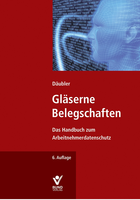  Manual on employee data protection Manual on employee data protectionThe sixth edition of the classic manual by Professor Däubler, the German labour legislation expert, was published in January 2015 under the title “the glass workforce”. Through the ever increasing networking of IT systems, data-protection has finally reached an international dimension. Reason enough, moreover, for EWC members to familiarize themselves with the topic. It is particularly important for beginners since it not only explains legislation but describes the reasons behind data-protection and how it works. New topics include the Cloud and Big Data. The manual is also suitable as a reference book since it has an extensive indexed glossary. It is however only available in German.  Forthcoming event Forthcoming eventFor the second time running, a seminar on data protection in the international company is being organized from 28 to 30 October 2015 in Hamburg.
In January 2015, a network of research institutes from seven EU countries published their results and recommendations based on 14 case studies in seven multinational companies. This covers altogether 18 different agreements signed in general by the European works council. However, in two French cases, the EWC is only responsible for monitoring and the European Trade Union Federation is the sole contracting party. The divided trade union environment in France makes it more viable to delegate to European-level trade unions. So far transnational company agreements still lack a water-tight legal basis. It is for this reason that the European Parliament demanded legal safeguarding measures in September 2013 (see report in EWC News 3/2013).
A new edition of this phrase-book for German, French and Dutch has recently been published. It aims at facilitating communication during business trips, assisting in the composition of business letters and is above all adressed to everyone working in the German-Belgian-Luxembourg linguistic area. In addition it includes useful terms and idioms ordered by topic. It is published by the Brussels office of the Goethe Institute, a cultural facility for the promotion of the German language abroad, and the German-Belgian-Luxembourg Chamber of Commerce in Brussels. A mini dictionary is also available for download in these three languages, free of charge.
We have gathered a collection of further literature into a compilation.
|
|
12. The EWC Academy:
Examples of our work
|
|
Seventh Hamburg EWC conference since January 2009   The annual EWC Academy
conference was held on 26 and 27 January 2015, this time in the Hafen
Hamburg hotel with a panoramic view over the river Elbe and the city
skyline. Apart from current developments in European labour legislation
and the landscape of European works councils there were reports on
practical experience from the Zurich insurance group on improved
information and consultation procedures during pan-European
restructuring (see report in
EWC
News 2/2014) and on the current legal proceedings at the
packaging manufacturer, Amcor (see report in
EWC News 2/2014). On the second day a short seminar
took place on the consultation procedure. The annual EWC Academy
conference was held on 26 and 27 January 2015, this time in the Hafen
Hamburg hotel with a panoramic view over the river Elbe and the city
skyline. Apart from current developments in European labour legislation
and the landscape of European works councils there were reports on
practical experience from the Zurich insurance group on improved
information and consultation procedures during pan-European
restructuring (see report in
EWC
News 2/2014) and on the current legal proceedings at the
packaging manufacturer, Amcor (see report in
EWC News 2/2014). On the second day a short seminar
took place on the consultation procedure.First comprehensive consultation procedures started   The
Avaya European works council was informed about
a pan-European restructuring project on 2 March 2015. The company from
the USA, which provides telecommunications solutions for businesses,
has its European headquarters in Frankfurt (photo). The EWC agreement
comes under German jurisdiction and includes the information and
consultation standards from the new EU Directive. EWC Academy advisors
are currently working on the analysis of the business figures which are
the basis for the management’s project. The EWC Academy was
commissioned as advisor in December 2014 (see report in
EWC News 4/2014). The
Avaya European works council was informed about
a pan-European restructuring project on 2 March 2015. The company from
the USA, which provides telecommunications solutions for businesses,
has its European headquarters in Frankfurt (photo). The EWC agreement
comes under German jurisdiction and includes the information and
consultation standards from the new EU Directive. EWC Academy advisors
are currently working on the analysis of the business figures which are
the basis for the management’s project. The EWC Academy was
commissioned as advisor in December 2014 (see report in
EWC News 4/2014).Call center operator accepts participation in the supervisory board   A SE participation agreement
was signed on 27 March 2015 for Amevida in Gelsenkirchen. For the first
time in the company‘s history, the twelve member Special
Negotiating Body, with support from the EWC Academy, was able
to enforce employee participation on the supervisory board. As one of
the largest German call center operators, Amevida provides integrated
customer relation management for large customers. In the transition
period, the German central works council will fulfill the role of the
SE works council, with two employee representatives on the supervisory
board. Subsequently foreign subsidiaries will be added and the SE works
council will hold three regular meetings per year. A SE participation agreement
was signed on 27 March 2015 for Amevida in Gelsenkirchen. For the first
time in the company‘s history, the twelve member Special
Negotiating Body, with support from the EWC Academy, was able
to enforce employee participation on the supervisory board. As one of
the largest German call center operators, Amevida provides integrated
customer relation management for large customers. In the transition
period, the German central works council will fulfill the role of the
SE works council, with two employee representatives on the supervisory
board. Subsequently foreign subsidiaries will be added and the SE works
council will hold three regular meetings per year.  EWC basics seminars in
Montabaur Castle EWC basics seminars in
Montabaur CastleFrom 7 to 10 April 2015 the annual introductory seminar of the EWC Academy took place in Montabaur castle. On the agenda was the way to establish a new European works council and how to make the most of the new legislation on information and consultation in restructuring. The motto was: from a "song-an-dance-act" to a fully fledged European works council. Since the blueprint of the EU Directive was the information and consultation procedure in France, European works councils need to look from a French perspective through "French glasses" to strategically develop the EWC.
|
|
13.
Current training schedule
|
|
The EWC Academy and its
forerunner organization
have been organizing and delivering conferences and seminars for the
members of European works councils, SE works councils and Special
Negotiating Bodies since January 2009. So far 619 employee
representatives from 233 companies have taken part including many of
them for several times. This represents around 19% of all transnational
works council bodies in Europe. In addition there are numerous in-house
events and guest lectures given to other organizations.
  Employee representatives in U.S.
companies Employee representatives in U.S.
companiesFor the third time, a conference is being held for U.S. company works council members on 11 and 12 June 2015, this time in Berlin. Besides presentations there will be possibilities for an exhange of experience on European works council activities and on the American management culture. Works council members from European companies with sites in the USA may also participate. Klaus Franz, former EWC chairman of General Motors will moderate the conference. The Social affairs attaché of the German embassy in Washington, Hermann Nehls, will attend as a guest speaker.
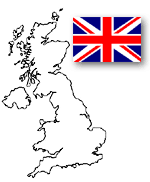 Seminars on labour legislation
and EWC work in Manchester Seminars on labour legislation
and EWC work in ManchesterIn 2015, the EWC Academy will further increase its seminar offering in the United Kingdom and has started co-operation with the Trade Union Education Unit at Manchester College. The training facility is highly specialized in workplace employee representation and was awarded a TUC prize for quality in 2012. A seminar is being organized for the first time from 23 to 25 June 2015 on labour legislation and industrial relations. The British system will be presented in German; in parallel there will be a seminar for English-speaking participants on the German co-determination system. A further seminar is being held in Manchester from 2 to 4 September 2015 aimed at EWC members who wish to work more proactively in the future (in English, with interpretation on request). Seminar on French industrial relations in Paris   For the forth time already a
conference is being organized from 14 to 16 September 2015 in Paris. On
the first day speakers from France will give an introduction to French
industrial relations. Another day is for a conference together with
French participants (with interpreters). The special highlight on the
last day is a visit to a large exhibition for French works councils
(with foreign language assistance). For the forth time already a
conference is being organized from 14 to 16 September 2015 in Paris. On
the first day speakers from France will give an introduction to French
industrial relations. Another day is for a conference together with
French participants (with interpreters). The special highlight on the
last day is a visit to a large exhibition for French works councils
(with foreign language assistance).Why a conference in Paris? The philosophy behind information and consultation in the EU Directive on European works councils as well as in employee participation in the European Company (SE) is closely tailored around French consultation practices. An exact knowledge of the subtleties of the French model is therefore indispensable. Participation to the conference is possible according to Article 10 (4) of the EWC Directive and it will be simultaneously interpreted (including English). The following texts are only available in German language: Additional seminar dates
Language courses: Business English for works council members
In-house events
Please find a summary of possible topics for in-house events here: |
|
14. Imprint
|
|
EWC News is published by:
EWC Academy GmbH Rödingsmarkt
52, D-20459 Hamburg
Authors collaborating on this issue: Werner Altmeyer, Katharina Barrie, Manfred Bobke, Jochen Brandt
Distributor of the German version: 20,298 readers Distributor of the English version: 3,418 readers Distributor of the French version: 3,276 readers
Newsletter archive: www.ewc-news.com
We are always pleased to receive comments and suggestions in relation to this newsletter as well as reports on your EWC activities. Please write us at: info@ewc-academy.eu
|



